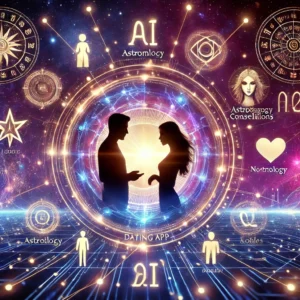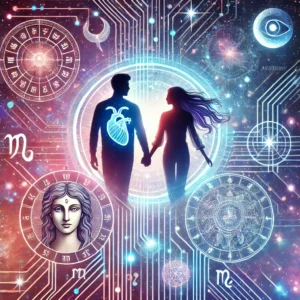
Astrology and numerology, two ancient practices, have captivated human imagination for millennia. Rooted in the desire to find meaning in the cosmos and numbers, these systems are more than pseudoscientific curiosities—they are a reflection of humanity’s quest for understanding its place in the universe. In this blog post, we’ll delve deep into their ancient origins, exploring their historical development and cultural significance.
The Birth of Astrology: Mapping the Stars to Understand Life
Astrology, the study of celestial movements and their influence on human affairs, is one of humanity’s oldest practices. Its roots trace back to ancient civilizations where the heavens were considered sacred realms guiding earthly events.
Mesopotamian Beginnings (2000 BCE)
Astrology’s origins lie in Mesopotamia, where the Babylonians meticulously observed celestial phenomena. Around 2000 BCE, they began linking planetary movements to agricultural cycles and political events. The concept of the zodiac, a twelve-part division of the sky, was introduced here, based on the ecliptic—the sun’s apparent path through the stars.
Egyptian Contributions
In ancient Egypt, astrology merged with religious beliefs. The Egyptians saw the stars as divine entities influencing life and death. They integrated astrology into their architecture, aligning pyramids and temples with specific celestial bodies like Sirius, whose rising signaled the Nile’s inundation. This connection underscored astrology’s practical and spiritual importance.
Greek and Roman Integration
Astrology entered a new era with the Greeks, who incorporated it into their philosophical frameworks. Thinkers like Ptolemy wrote extensive treatises, such as the Tetrabiblos, formalizing astrology into a system that would influence Western thought for centuries. The Romans adopted Greek astrology, blending it with their mythology to guide political decisions and personal lives.
Numerology: Finding Meaning in Numbers
Numerology, the belief in the mystical significance of numbers, has similarly ancient roots. It revolves around the idea that numbers are the building blocks of the universe, each carrying unique vibrations and influences.
The Pythagorean Legacy (6th Century BCE)
Though numerology predates him, Pythagoras is often regarded as its father. This Greek mathematician and philosopher believed numbers were sacred, linking them to music, geometry, and cosmology. He proposed that numbers like 1, 3, and 7 had spiritual significance, laying the foundation for modern numerological systems.
Chaldean Numerology
The Chaldeans, an ancient Mesopotamian culture, also developed a unique numerological system. Unlike the Pythagorean model, Chaldean numerology linked numbers to planetary vibrations and the energy of names, forming the basis of modern interpretations.
Eastern Numerology
In China and India, numerology was intertwined with other metaphysical practices. The Chinese system emphasized harmony, associating numbers with auspicious or inauspicious meanings. For example, the number 8 symbolizes wealth and prosperity. In Vedic traditions, numerology was part of astrology, where numbers played a key role in crafting personalized horoscopes.
Cultural Integration and Modern Revival
Both astrology and numerology spread through trade, conquest, and cultural exchange, influencing societies worldwide.
Medieval and Renaissance Periods
During the Middle Ages, astrology flourished in the Islamic world. Scholars like Al-Biruni translated Greek astrological texts, enriching them with Islamic thought. In Europe, astrology became a cornerstone of medicine, with physicians using horoscopes to diagnose illnesses. Numerology, though less prominent, was kept alive through esoteric traditions like Kabbalah, which assigned numerical values to Hebrew letters to reveal hidden meanings in texts.
Modern Practices
Astrology and numerology saw a resurgence in the 19th and 20th centuries, fueled by movements like Theosophy and the New Age. Today, they are embraced as tools for self-discovery, blending ancient wisdom with contemporary perspectives.
The Enduring Appeal
Why do astrology and numerology continue to thrive in the modern world? Perhaps it’s their ability to offer comfort, guidance, and a sense of connection to something greater. In a chaotic and unpredictable world, the stars and numbers provide a framework for understanding our lives and choices.
Whether you view these practices as mystical truths or cultural artifacts, their ancient origins remind us of humanity’s enduring desire to explore the unknown. Astrology and numerology are not just relics of the past—they are living traditions that continue to inspire and intrigue.
Conclusion
Astrology and numerology, rooted in ancient history, remain potent symbols of our quest for meaning. By examining their origins and evolution, we gain insight into the cultural richness and timeless allure of these mystical practices. As tools for self-reflection or historical curiosity, they invite us to ponder the intricate connections between the cosmos, numbers, and the human spirit.
Let us know—how do you engage with these ancient systems? Are you a believer, a skeptic, or an explorer of their historical depths? Share your thoughts in the comments below!
| ReplyForwardAdd reaction |



